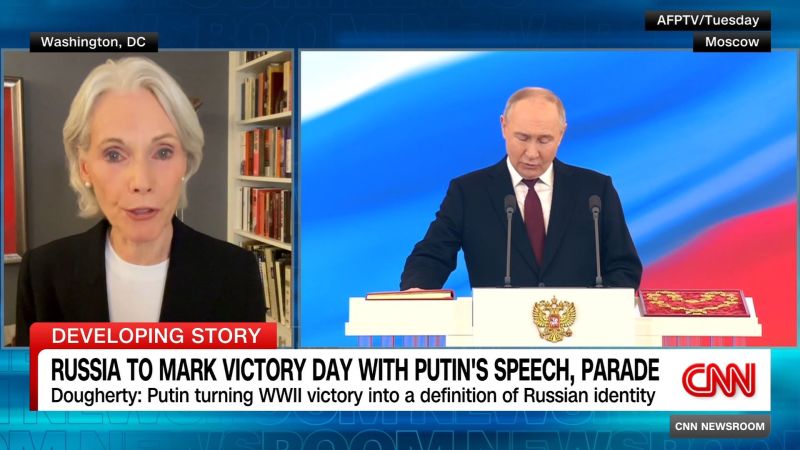A wave of patriotism often sweeps the nation during Victory Day in Russia, an annual tradition that celebrates the Allies’ defeat of Nazi Germany. However, beneath the surface, this hallmark ceremony masks the simmering tensions within President Vladimir Putin’s Russia. Along the grand boulevards of Moscow, where tanks parade and aircraft ply in synchronized formations, there exists a disquiet that informs the complexities and contradictions within the Russian societal structure.
The grandeur and pageantry of Victory Day are not simply markers of the past; they are deeply entrenched tools of the Putin government to foster nationalist sentiments. Historically, the event stands as an annual act of historical recreationism, a state-orchestrated patriotic spectacle where World War II is revivified as a potent marker of Russia’s geo-political importance and a constant source of national pride. By leveraging historical narratives that appeal to the collective consciousness of the people, the Putin government finds a convenient cloak to distract attention from pressing domestic issues and rising discontent among the masses.
A glaring point of concern across Putin’s Russia is socio-economic inequality, which is frequently set aside during the Victory Day celebrations. As people encounter economic adversities in their day-to-day lives, the state continues to allocate significant funds for defence and large-scale patriotic parades. Though the parade’s sophisticated weaponry and jet flyovers are intended to highlight Russia’s militaristic might, they equally expose the gap between Russia’s global ambitions and the welfare of its citizens.
Equally crucial is the political discontent brewing amongst the younger generation. Empowered by easy access to global narratives through the internet, the Russian youth are increasingly aware of their political freedoms vis-à-vis their western counterparts. Clumsily-Photoshopped images of Putin in the war and patriotic social media hashtags can come across as propaganda rather than celebratory. The shift in their perception has become a cause for concern for Putin’s government which deploys a selective reading of history to foster national unity, unwittingly fuelling tension in the process.
The gap grows wider with the silencing of political dissidence. The Kremlin’s handling of opposition figure Alexei Navalny has outlined a robust intolerance for any threat to Putin’s authoritarian rule. However, this repression fails to alter the palpable fear and anger threading through Russian society, subtly manifested in whispers and social media murmurs.
Embedded within these displays of national pride and collective memory during Victory Day are the deep-seated issues of Putin’s Russia. The military march makes a valiant attempt at veiling the social inequality, political repression and growing disillusionment among the younger generation. Yet, the undercurrents of dissatisfaction seethe beneath the surface, turning what appears to be a commemoration of victory into a pressure valve channeling the complexities and contradictions of the Russian society.




